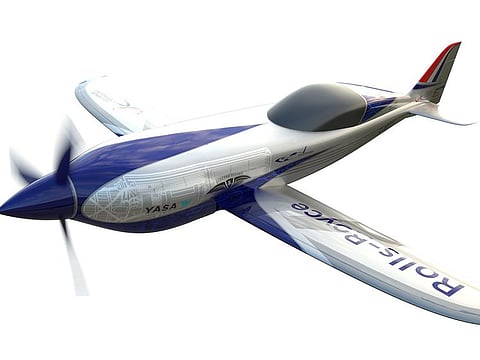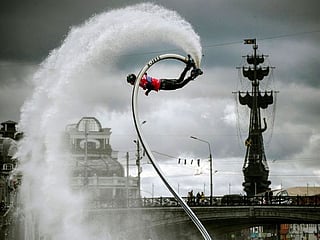Rolls-Royce does ground testing for fastest all-electric plane
UK engine maker's ACCEL programme features battery that can power up to 250 homes

Also In This Package
An all-electric plane? And the fastest one ever? Not as far-fetched as it sounds, going by what Rolls-Royce has done with its 'ACCEL' programme.
The UK engine maker is ground-testing the technology that will power, what it says, is the fastest all-electric plane. It has been tested on a full-scale replica of the plane’s core, called an ‘ionBird’, including a 500hp electric powertrain and a battery with enough energy to supply 250 homes.
The first flight is planned for later this year and the aim is to beat the current all-electric flight world record early next year. Half of the project’s funding is provided by the Aerospace Technology Institute (ATI), in partnership with the Department for Business, Energy & Industrial Strategy and Innovate UK.
Full speed ahead
"The completion of ground-testing for the ACCEL project is a great achievement for the team and is another important step towards a world record attempt," said Rob Watson, Director – Rolls-Royce Electrical. "This project is also helping to develop Rolls-Royce’s capabilities and ensure that we remain a leader in delivering the electrification of flight.”
The Rolls-Royce initiative ACCEL stands for ‘Accelerating the electrification of flight’. The project team includes key partners YASA, the electric motor and controller manufacturer, and aviation start-up Electroflight. Mark Scully, Head of Technology for Advanced Systems & Propulsion at the Aerospace Technology Institute, said: “The ACCEL team is pioneering the integration of high-performance batteries, motors and drives to deliver an electric propulsion system in an ambitious flight test programme."
ACCEL facts
* This is the first Rolls-Royce project to use offsetting to make the whole programme carbon neutral. * There is a long history of 'iron-birds' in aviation for testing propulsion systems ahead of flight, but in this case the test airframe was named ‘ionBird’ after the zero-emission energy source propelling the aircraft.









